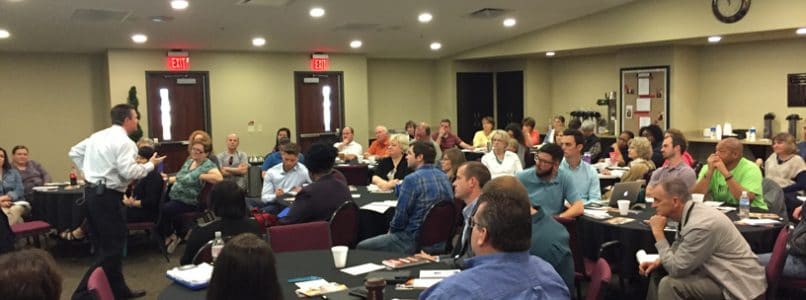Ben* was a talented young man who joined our church staff as a part-time music leader. He was finishing his college work and planned to serve churches the rest of his life. He was good, and we loved him.
He was also green and impatient. Time is so frustrating to 20-year-olds. He quit school because he had too many important things to do. He stayed with our little church for a few months before moving on in search of broader opportunities. Within a year, Ben was out of local church ministry and raising a family. While I’m happy he’s walking with the Lord, I think of him with a bit of sadness. One thing that short-circuited his ministry was impatience, an unwillingness to submit to the discipline of preparation. That happens too often.
Consider a common medical procedure, removing a wart or maybe a CT scan. If you go for something like that you hold still while medical personnel approach you with strange instruments. You let them inject things into your bloodstream, and if they say, “drink this,” you will usually drink it.
What if these smart people had skipped med school? What if they were too busy to read medical journals or keep up with the vagaries of drug interactions? I for one would be less enthusiastic about holding still or drinking whatever nasty concoction they hand me. That holds true for other professions and trades. I’d even want the guy who comes to repair my satellite dish to have been to training adequate for the job.
Shouldn’t that be true of ministry also? I recently saw an exchange on Facebook where a commenter said that the call of God alone was sufficient for a person to be a minister. Years before, I attended a conference breakout where the presenter said that an illiterate new believer who knows Jesus knows enough to oversee a church planting movement. Really?
That’s not biblical, friends. Paul saw Jesus, heard his voice on the road to Damascus and then, though already a religiously educated Jew, spent three years preparing for his ministry as an itinerant, bivocational church planter. He counsels Timothy to select men for pastoral duties who were able to teach and not recent converts—an implied endorsement of preparation at least. He’s more explicit when he tells Timothy to work at rightly handling the word of truth. Maturity, preparation, study and proven commitment are qualifications for ministry leadership as surely as integrity and gentleness.
I’m currently serving on my church’s pastor search team, and we are working through qualifications for pastoral leadership. We’ve discussed how much emphasis to put on education. I tend to think “more” rather than “some” on that subject, and I think that training should be of a certain type.
It should be legit. On previous pastor searches, our team has had to look up schools on resumes and then ask for help to sort out diploma mills (no significant study, no accreditation, etc.) from actual academies. This shows something of a potential pastor’s heart and integrity I think. If he’s willing to claim a degree from “Bob’s Seminary and Bait Shop,” he’s cut corners in other places.
It should be legit, part 2. These days, a search team is nearly required to call seminaries and universities to see if a candidate actually has the degree he claims to have earned. It’s shameful but true that this happens. Here also, if he’s lied about this, he’s lied about other things.
His education should have been difficult. I agree with those who say that one benefit of an on-campus seminary experience is that it makes a student suffer a bit. It matures us, teaches us patience and gives us experience in submitting to a program broader than our interests or vision. These experiences have corollaries in “real life” experiences to come. This is not a hard and fast rejection of online learning; online has a place. But it does raise a question that should be asked.
His education should be pastorally oriented. As gently as I know how to say it: either our seminaries should stop training youth and college ministers as if their work is programmatic rather than pastoral, or our churches are going to need to require youth ministers to upgrade their skills before becoming pastors. It happens every day. Just about any education can provide some maturity and growth in a person, but if you want him to have learned how to handle the Bible and a bit about pastoring a church, he should have a Master of Divinity (MDiv) or a comparable degree with an emphasis in biblical studies and pastoral ministry. Seminary deans or registrars will be thrilled to answer questions about the dizzying array of degree programs offered today. Don’t hesitate to ask the candidate a lot of questions if something is unclear. Again, ask him why he made the educational choices he made. If his motivation was simply to get done sooner or avoid learning Greek and Hebrew, it reveals something of his attitude toward ministry.
Formal education is not all there is to ministry preparation, not by a long shot. But it is a quantitative indicator, as informative as his past experience and references, in telling of his ministry qualifications. I’d not reject a man based solely on his level of education, but I’d hesitate to call a pastor who considers education to be of little importance, whether he says it plainly or shows it by his history and habits.
*Nope, his name is not really “Ben”











